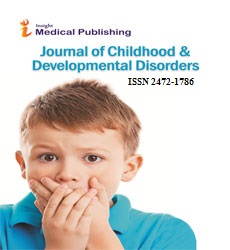Reflections Regarding Open-Access Journals and Social Justice
Rafael Lara-Alecio
DOI10.4172/2472-1786.100024
College of Education and Human Development, Texas A&M University, USA
- *Corresponding Author:
- Rafael Lara-Alecio
Department of Educational Psychology
College of Education and Human
Development Texas A&M University, College
Station, TX 77843-4225, USA.
Tel: (979)-845-3467
Fax: (979)-458-0192
E-mail: a-lara@tamu.edu
Received: April 25, 2016; Accepted: April 27, 2016; Published: May 04, 2016
Citation: Lara-Alecio R. Reflections Regarding Open-Access Journals and Social Justice. J Child Dev Disord. 2016, 2:16.doi: 10.4172/2472-1786.100024
How is an open access peer-reviewed journal, such as the Journal of Childhood and Developmental Disorders, aligned with social justice?
First, let me put forth my definition of social justice—and that is—basically acting in a fair and equitable manner. It is also breaking down barriers of unfair practice and inequities. Second, I believe that those reading this editorial would already be aware that open access peer-reviewed publishing means that scholarly materials are openly available to every individual in the world who has internet and who wishes to read about the particular topic presented that has been vetted via a double-blind, peerreviewed process among academic colleagues.
There are numerous issues related to social justice and open access publishing. Of course, journals, in general, whether they are open access or paid subscriptions, are leaves of up-to-date knowledge, or cutting edge information. Thus, access to journal material is imperative for advancing societies and, I might even go so far as to say–also moving individuals to higher levels of economic benefit based on the knowledge they gain that makes them better employees or for that matter, basically employable. Therefore, the social justice issues related to open access journals are the addressing of access, knowledge, poverty, and power.
In terms of publishing, there has been an increase in the cost of journals that university libraries must pay [1]. For certain, if it is difficult for United States and developed nation libraries to obtain journals, it is even more difficult and nearly impossible for developing nations’ universities to obtain such costly publications. Open access journals (and I might add books) allow access to knowledge for students and researchers in countries that would otherwise not have it to advance their own research or to use in their teaching. Of course, to have university access, the individuals would have to be researchers, employees, staff, or students and for individuals at home to obtain the information having internet access is necessary—this—is another point of access that is related to social justice—meaning, is access to just-in-time, advanced, scientific information equitable for all? Access is highly related to poverty. If an individual cannot afford to be at the university or to have internet at home, then access is certainly limited. Furthermore, without access to information, knowledge is thwarted or stunted. Certainly, poverty and lack of access to information leads to knowledge disruption. In general, I am advocating that when there is such a knowledge disruption, societies as a whole do not advance as they should.
But, one might say, “The researchers at universities have access to journals and materials via their libraries.” Even then, as indicated, not all universities can afford high-priced books and journals for reference and research. So, again, there is an inequity among the worldwide community of scholars in terms of access to knowledge, and once again, there is a knowledge disruption. Those who have access, it might be argued, have more power; that is, those who have access to information, own the power. Such a situation of lack of access sets up a system of injustice and inequity among scholars and their students.
Ultimately, there is one more issue related to social justice, and that is the proliferation of open access journals. It is not a just knowledge distribution to have journals that are paid for via libraries at high rates that provide a very rigorous peer-review process and then to have an open-access journal that may not provide rigorous peer review, or for that matter, not even one at all. This is an equity issue among the academic community for tenure and promotion. There was a time when tenure and promotion committee would not even consider online journals, much less open access ones. Today the tide has turned somewhat, but only toward those open-access journals that demonstrate the same equitable standards and non-open access journals that have a rigorous peer-review process prior to publishing.
One last statement that could also be an equity issue that is related to tenure and promotion is the fact that at times open access journals may not be fully open access in terms of charging for publication. I understand there is no income from libraries or subscriptions; however, perhaps there needs to be a scholarship system among journals that charge fees for publishing to advance economic parity among authors around the world. Some universities do not have funds to assist with publishing fees and it falls to the author to pay, while other universities may. This is a matter of equity of how knowledge is pushed out to the public or to the community of scholars and students.
For the reasons I have pondered, I believe that open-access publishing aids in pushing the envelope for social justice. It provides a more level playing field for all in terms of (a) delivering and obtaining knowledge, (b) understanding up-to-date scientific information, (c) increasing upward mobility and employability, and (d) ensuring greater societal gain.
References
Open Access Journals
- Aquaculture & Veterinary Science
- Chemistry & Chemical Sciences
- Clinical Sciences
- Engineering
- General Science
- Genetics & Molecular Biology
- Health Care & Nursing
- Immunology & Microbiology
- Materials Science
- Mathematics & Physics
- Medical Sciences
- Neurology & Psychiatry
- Oncology & Cancer Science
- Pharmaceutical Sciences
